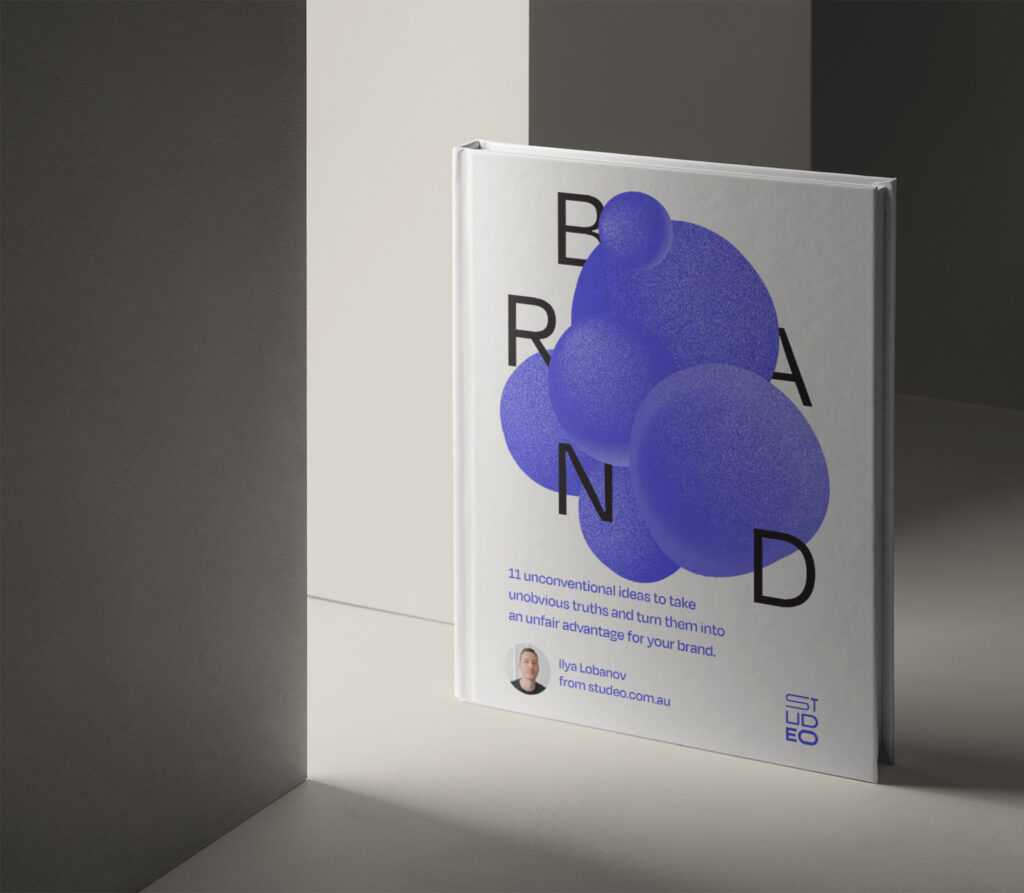10 Unorthodox Ideas for Effective Brand Management
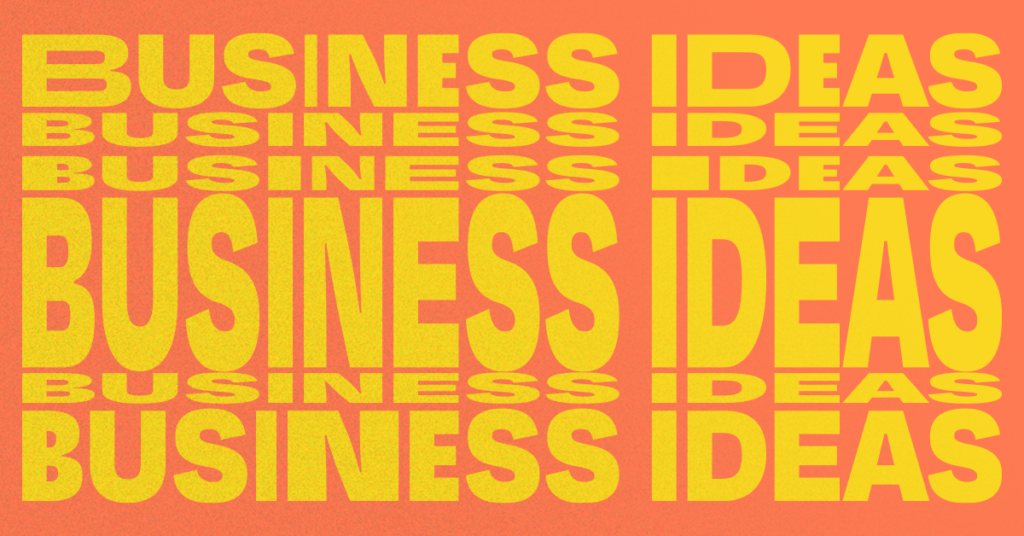
You know that positively annoying time when everyone you never asked shares their take on what your New Year’s resolution should be?
That’s right – the beginning of every year.
Well, I wasn’t going to miss the boat. And at the beginning of this year, I published 23 ideas to help entrepreneurs re-energise their brands and businesses in 2023.
Many of the ideas were also geared at those transitioning from employment to launching a new business (something I’d personally done almost 5 years ago).
And following the 23 prompts, I went on to post another 37 as part of a 60-day content challenge.
They were so popular, in fact, that a small crowd of 3 asked if I can package it all into one big ebook (If this is something you’d download too, you can do so here)
Today, I’d like to leave you with the 10 top-performing posts from that list.
10 unique lenses to look through to build a more effective and innovative brand.
1. What do eggs and brand offers have in common?
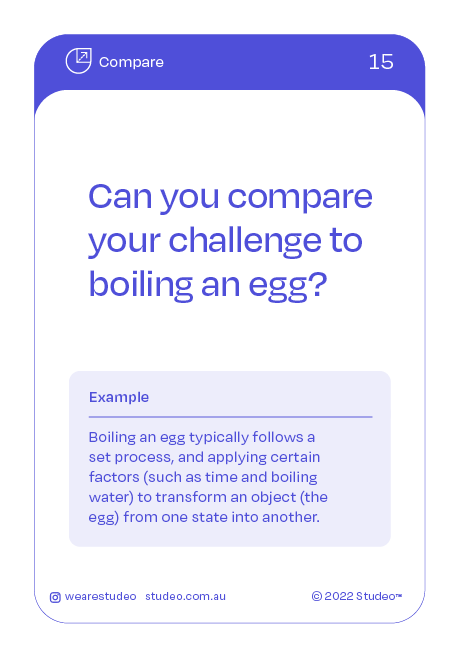
Apply an egg analogy to the process you use to take customers from A to B.
All of your customers have a desired end-state.
You have the most efficient way for them to get there.
However, while they might all want an egg, not everyone will want it delivered in the exact same way.
Soft-boiled, hard-boiled, devilled (this is just boiling, not to mention omelettes, frittatas, etc)
Even if you only ‘hard-boil’ – don’t turn others away*.
*If it would only take a small tweak to ‘soft-boil’ too.
Can you think of at least 3 ways to adjust your offers (and process) so you can accommodate (and increase revenue as the result)?
- An option that has most of ‘you’ in it
- An option with less of ‘you’ and more ‘self-help’
- An option purely focused on ‘self-help’
2. Brand management 101: show increased value
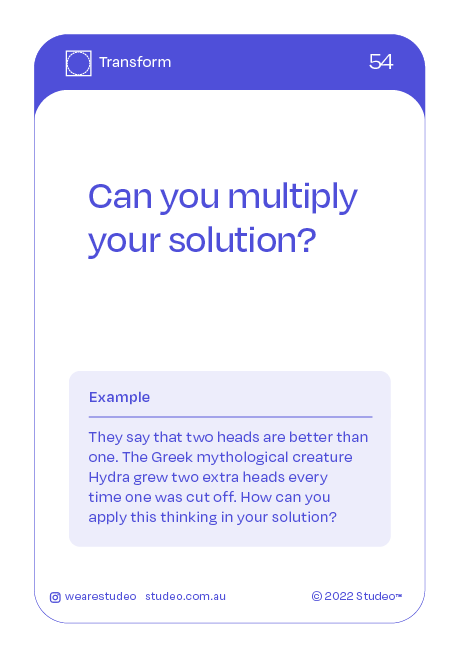
As a thinking exercise, let’s take a part of this prompt literally.
What is it about the way you deliver your product/service that can you 10X?
PayPal’s Peter Thiel says to be competitive, every company needs to have something that’s 10X better than their closest competitor.
And often, the only way to get customers to switch brands is to be 10X better in at least one dimension.
The interesting thing is that this doesn’t necessarily need to be the core thing around which your offering is built.
It could be just one thing that makes a significant difference.
e.g. Performance, reliability, convenience, quality, variety, availability, and delivery methods.
3. What if your solution was borrowed?
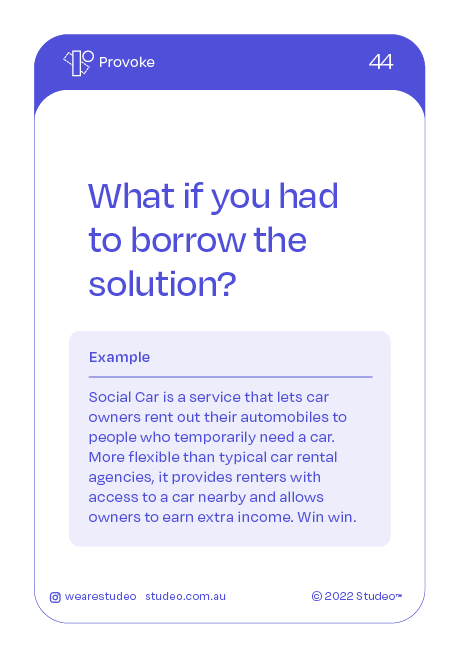
Airbnb doesn’t need hotels to compete with hotel chains.
Uber doesn’t need cars to compete with taxi services.
Even Apple doesn’t create all components for their products.
If you’re thinking about starting a business, you can see that you can do so without ‘owning’ anything.
Here are some of the most popular business ideas from 2022:
- Dropshipping (products shipped by others)
- Affiliate marketing (products made by others)
- Ghost kitchens (food prepared by others)
- Digital marketing (marketing other businesses)
You can apply this thinking to an existing business too – without redoing your entire business structure.
Because when you decide to scale you’ll need to either find more time (outsource or delegate) or find a way to clone yourself.
4. Is there something forgotten that can be made exciting again?
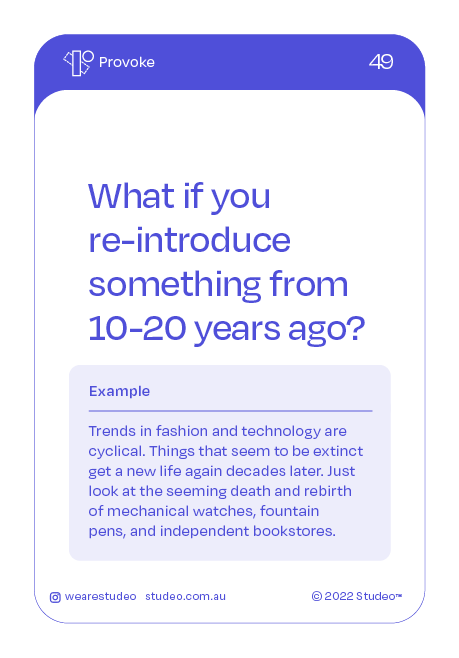
Tamagotchi.
Do you remember those needy digital pets you carried around in your pocket in the 90s? Or perhaps you were a fan of another super popular game in that same era called Tetris?
Well, both of these are making a huge comeback in the 2020s, and not just for those of us who are feeling nostalgic.
The younger generation has had such an influx of input since their birth, like real-life graphics, animated movies, and avatar-based virtual realities, that simpler 8-bit games can almost feel like a welcome zen-break from all those notifications and noise.
The learnable lesson here is that if something was popular once, it can likely gain popularity again. Things get a new life again decades later because we all gravitate towards familiarity.
So if you want to revitalise an existing business in some way. Or you’re thinking of starting something new but don’t know what yet.
Look at some cultural phenomena from 10-20 years ago for inspiration.
5. Why put lipstick on a pig?
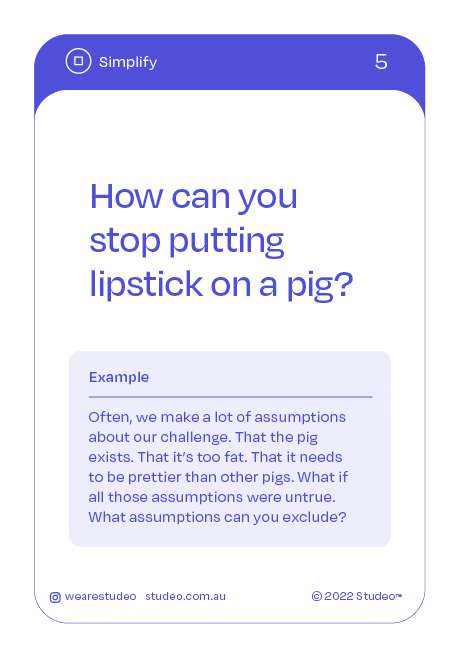
There is a common, hindering cycle that many businesses face.
(More product brands, but service-based businesses go through it too)
They start with a core focus, one core idea or solution they provide.
e.g. Helping to track and improve time efficiency for corporate teams.
Over time, whether through customer requests or their own shiny object syndrome, they end up adding a bunch of features. (Features not directly connected to their core idea e.g. project management functionality, accounting, and invoicing)
They become so inefficient to finally realise that they need to simplify, going back to their core idea. Then the cycle repeats.
In this example, brands assume all customer requests need to be actioned. They end up putting lipstick on a pig.
The team (business) hasn’t decided if they want to focus on (a) sustaining existing value for a select few or (b) delivering every new request to remain relevant and accessible for everyone.
You’ve got two options:
- Continue repeating the cycle until exhaustion
- Find out what you stand for (a or b)
6. What is minimum viable perfection?
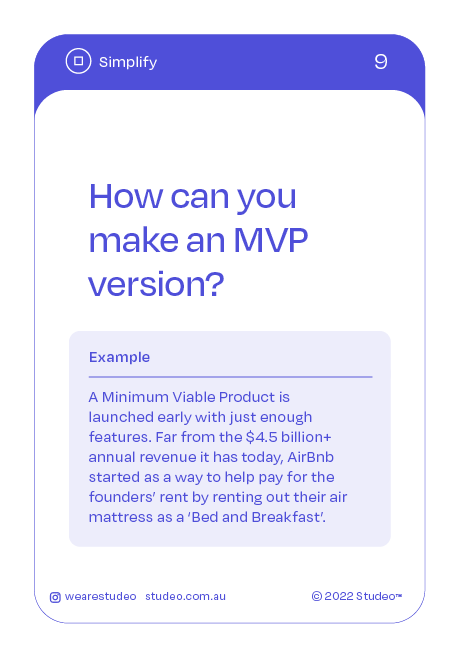
Perfectionism can be a wonderful quality if balanced with action, and framed as ‘having a vision’.
It also implies and requires a high level of patience (paradoxically, I’m very impatient, but through practice, I’m able to stretch that muscle)
The thing about patience is that it only works if you do.
If you are researching, planning, and looking for inspiration to feed your vision, that ‘patience’ translates into procrastination and rarely eventuates with a product. Scenario A.
If you combine your patience with focused actions, you get progress and outcomes. Scenario B.
Most perfectionists like us (that’s basically any entrepreneur or designer) see an MVP as a subpar, imperfect product that doesn’t match our ideal vision.
Instead, think about an MVP by framing it as a set of milestones that do eventually lead up to your ideal vision.
Incrementally.
And with a 1000% more likelihood of seeing progress (as opposed to Scenario A).
7. What 2 simple lenses can help you innovate?
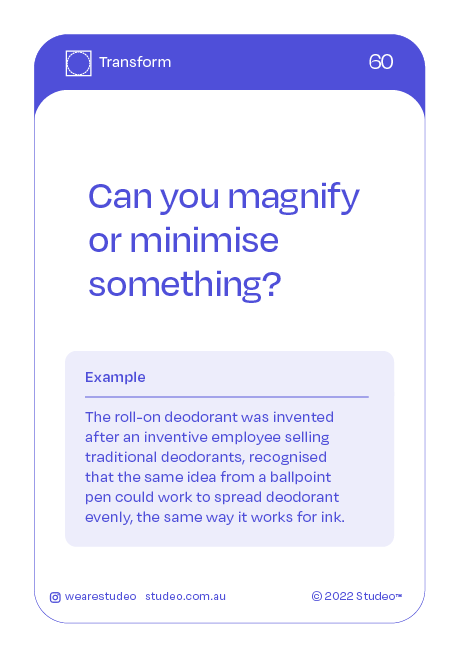
When I was 10 my parents encouraged (read forced) me to read more books. So I hated it.
Because of this early ‘trauma’ and associated dislike of books I didn’t really pick up a book voluntarily until I was in my late 20s.
Now that I am older I love reading – it’s one of the best ways to learn something new and expand your brain by ‘downloading’ new information into it.
Well, if we take this prompt and the concept of books, what are some examples of magnifying or minimising, that have led to innovation?
E-readers minimise the physical size and weight of books by replacing paper with electronic ink displays. They also minimise the storage space required for books (you can have 100s of books in an e-reader).
Audiobooks take that concept even further, as they also minimise the effort in reading. You don’t need to schedule a time to read as you can simply listen to a book while driving, or exercising at the gym.
This type of thinking can be applied to just about any industry, product or service. Can you think of a way to magnify or minimise something in your line of work?
8. What if your brand’s future feels foggy?
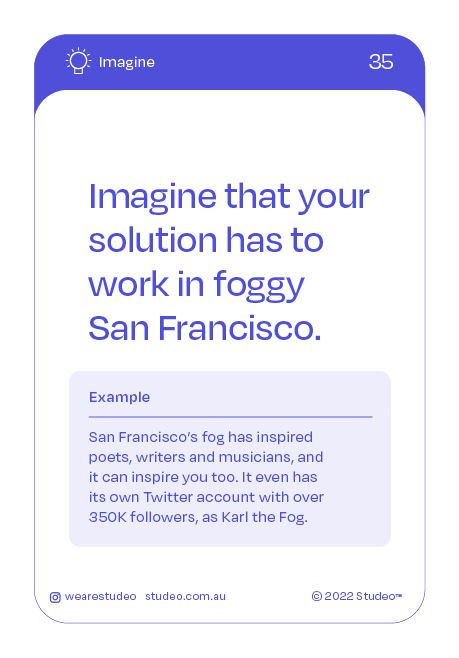
In the world of business think of the fog as uncertainty.
The grey transition period between where you are now and where you’d like to be.
It can be especially challenging to keep your confidence if you don’t have clarity about what you need to do.
But one thing is clear. If you’ve hit a plateau, whatever got you here won’t get you there.
Here’s an example from a recent client interaction.
They’d been accustomed to learning necessary skills ‘on the job’.
And amazingly, this approach served them for 25 years, but they’d been stuck for a while.
New strategy – hire subject-matter experts to help them leap to new grounds (marketing, technology, social media, leadership training).
Can you spot an outdated practice in your business that no longer serves it?
9. How can you look at niching differently?
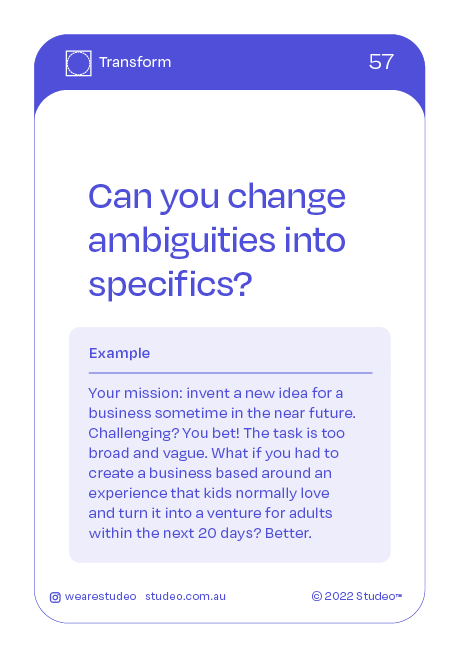
I believe most people are looking at niching all wrong.
Looking at a specific industry or sector to work with. Or only focusing on a specific deliverable. Or only working with a business of a certain size.
Yes, you can niche based on those things. But it should be a combination of all of them and a whole lot more.
It could also be informed by the generation the company’s founders were born in. And/or shared interests they have in common with you. And/or types of challenges they face as part of their daily role that you’re uniquely positioned to solve.
Basically, the more specific, the better. And I, as a self-professed Deep Generalist have always found this the most challenging.
And sometimes we all need that reminder: being vague and ‘for everyone’ with ‘every type of challenge’ isn’t doing you any favours in terms of new clients seeking you out.
Have you managed to tap into a successful ‘niche’ that’s been working well for you or do you still need to keep exploring?
10. How can you focus on the negative to win?
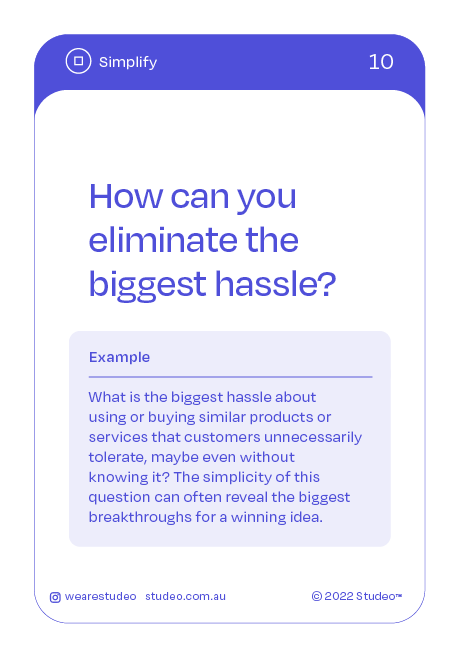
When I was about 20 I used to take my then-first car to a mechanic I really liked dealing with.
They always found a way to ‘save me money’ by getting after-market parts, or spotting when I could prevent a costly mechanical fault from happening.
And then one terrible event led to a total breakdown of our customer-to-brand relationship that couldn’t ever be fixed.
A long story for another post where the relationship was tainted. Despite years of delightful service.
So there’s an interesting paradox going on with customers choosing brands.
We ‘punish’ brands for bad service more readily than we ‘reward’ delightful service.
In other words, delightful service is what might draw us into the world of a brand initially.
But we almost expect it from that point onwards.
The moment they stuff up, we’re off looking for another.
You’d think we’d put more weight on those businesses that delight us.
But it turns out we value not being disappointed – more. Science supports this.
If today, you decided to put your ‘delightful’ experience aside for a moment and dedicate your full effort towards preventing the biggest hassle about your (or similar) products or services, what would it be?
Enjoyed this article?
Share this with someone you’ve been convincing to start a business for months. Or sign them up for Studeo Insider emails to get insights like this, once a month.
Want to access all 60 prompts? Download the Get Ideas Deck or download the ebook for free here.
